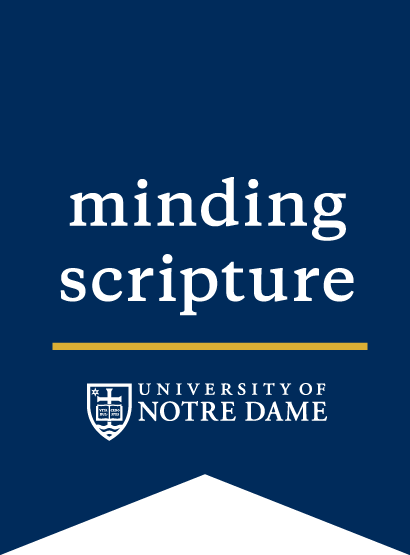Show Notes
This month, Minding Scripture, which brings together the life the mind and the life of faith, asks guest speaker Nathan Eubank and one of our hosts, Tzvi Novick, how historical-critical scholarship in both the Hebrew Bible and in the New Testament has developed over the last two centuries and what its current place in our understanding of the Bible should be. What is historical criticism and how did it begin? What is the enduring value of historical criticism, both intellectually and for the life of faith? What are some of its enduring achievements? What does the Epic of Gilgamesh, the psychology (or not) of Jesus, and the Jewishness of Paul have to do with all this?
Historical criticism, Tzvi Novick tells us, is an approach to the study of the Bible that attends to the fact that the books of the Bible were produced in specific historic contexts, and that knowing these contexts is significant for knowing what the Bible means. The authors and redactors of the Bible could assume knowledge with their audiences that is now foreign to us; they employed genres and words unintelligible to us today. Historical criticism studies the data of cultural, textual, and archaeological history in order to make these references, genres, and words intelligible. Historical criticism also tries to identify the distinct theological voices present in single books of the Bible. It reveals that the Bible is a tapestry of such voices, which makes the Bible an even richer trove for theological and faithful reading.
This style of reading and scholarship did not develop without controversy, though; our hosts discuss the progress and regress, tensions and achievements of historical criticism from the eighteenth century to the present. If we have advanced beyond nineteenth century discoveries in some respects, in others we have our own biases that still need scrutiny if today’s scholarship is to do justice to the Bible.
Further Reading
Joel S. Baden, The Composition of the Pentateuch, Yale University Press, 2012.
David M. Carr, The Formation of the Hebrew Bible: A New Reconstruction, Oxford University Press, 2011.
Nathan Eubank, Wages of Cross-Bearing and Debt of Sin: The Economy of Heaven in Matthew’s Gospel, De Gruyter, 2016.
Karel van der Toorn, Scribal Culture and the Making of the Hebrew Bible, Harvard University Press, 2009.
Featured Guest

Nathan Eubank is assistant professor for New Testament at the Department of Theology at Notre Dame. His research focuses on the Synoptic Gospels and on Paul, as well as on ancient biblical interpretation. His current project examines the concept of merit in early Christianity and its role in the construction of Christian origins.
Nathan Eubank
Christianity and Judaism in Antiquity
University of notre dame,
IMAGE CREDIT: Minding Scripture.
